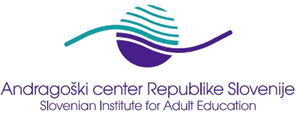- Navigacija
s tipkovnico
2016
Apprenticeship review: Lithuania
The publication is the final report of the thematic country review of apprenticeship in Lithuania. The report is based on information and views gathered in consultation with stakeholders in Lithuania (representatives of ministries, social partners, VET providers, companies, students, teachers and trainers). The review took place between May 2014 and March 2015 at the request of the Ministry of Education and Science of Lithuania. The report presents analysis of findings on main features, enablers and challenges of apprenticeship in Lithuanian VET, including the views of stakeholders at different levels. It proposes four directions for action to make apprenticeship a reality in the country: clarifying the vision, building on the enablers, improving information and communication about apprenticeship, and fine-tuning regulation on the way.
Skill shortages and gaps in European enterprises
The global crisis has increased unemployment in the EU to unprecedented levels, yet many employers claim they have difficulties finding skilled workers to fill their vacancies. This report shows that most vacancy bottlenecks arise because of factors other than general skill deficits, including job offers of poor quality. Genuine skill shortages affect a small group of dynamic, internationally oriented European enterprises in specific economic sectors (health and social care, ICT, advanced manufacturing). To mitigate skill bottlenecks, European companies must commit to offering high-quality apprenticeship places and good-quality jobs, which can be supported as part of a process of social dialogue between VET providers and labour market actors. Ultimately, the business and product market strategies of a greater share of European firms will have to become reliant on higher skill needs. The role of VET in developing creativity and entrepreneurial capacity in the European workforce will be crucial.
Tackling unemployment while addressing skill mismatch
This study reviews recent policies and practices aiming to tackle unemployment through addressing skill mismatch in the EU-28 Member States. It examines skill mismatch policy instruments aimed at reducing unemployment as well as measures to prevent it. While much research and analysis on mismatch exists elsewhere, it is the first comprehensive study that maps actual skill mismatch policies and practices in the EU. In-depth case studies help identify promising features of policy practices and contribute to better understanding of impact. The lessons support policy learning and can help Member States shape policies with a stronger focus on matching and pave the way for policy agendas that put skill matching centre stage.
Global inventory of regional and national qualifications frameworks
ow far is the world progressing towards comprehensive qualifications frameworks? The 2015 global inventory of regional and national qualifications frameworks, compiled by Cedefop, Unesco-HQ, the European Training Foundation and the Unesco Institute for Lifelong Learning, was launched on 25 April in Riga, Latvia. The inventory showcases 86 countries and examines how learning outcomes of all types of learning - formal, non-formal and informal - are being integrated into regional and national qualifications frameworks. Volume 2 provides an inventory of 85 NQFs and seven regional frameworks. The global inventory charts progress toward NQF goals, drawing on extensive research in the field of qualifications. The next edition is scheduled for 2017.
Job-related adult learning and continuing vocational training in Europe
Increasing adult participation in education and training, decreasing inequalities and ensuring labour market relevance are all important objectives of EU policies. This report provides a statistical picture of job-related adult learning and continuing vocational training in the EU. It selects, presents and analyses internationally comparable data from the adult education survey and the continuing vocational training survey. These are essential resources to complement and understand better the labour force survey indicator of participation in adult learning. The report provides further insights, in particular with regard to the job-related and employer-sponsored components of learning and training. Types, forms, purposes, content, employer support and financing of adult learning as well as obstacles and barriers are analysed. Results at EU and country levels, as well as key trends and breakdowns are presented. By contributing to better understanding of patterns and trends in adult learning and continuing vocational training, the report is a valuable tool for evidence-informed lifelong learning policies at EU and country level.
The role of modularisation and unitisation in vocational education and training
This study investigates the role of modules and units in vocational education and training (VET) in 15 EU countries and aims to determine how these structures fit in the wider VET systems. It provides a comparative analysis of different modularisation and unitisation practices and the rationale behind their implementation, and an outline of the different national contexts in which modular and unitised structures developed over time. It also offers a close-up of three different approaches to modularisation in one occupational area, in Germany, the Netherlands and Scotland.
Skills, qualifications and jobs in the EU: the making of a perfect match?
What has been the impact of the economic crisis on skill mismatch? Is there a cost in getting the unemployed quickly into any job? Why is skill mismatch prevalent among the EU workforce? To answer these and other timely questions on skill mismatch, in spring 2014 Cedefop carried out the European skills and jobs (ESJ) survey. The findings caution that the prolonged economic downturn is threatening the long-term potential of the EU’s human resources. A greater share of recent job finders has entered into jobs that need lower qualifications and skills than their own. The unemployed also run a greater risk of misplacement into jobs of lower skill intensity. More than one in five EU employees has not developed skills since they started a job, as over one third of EU jobs are characterised by poor task complexity and lack of continued learning. Closer stakeholder collaboration and policy action is needed in the EU to generate not only more skills but also, crucially, better jobs for better-matched skills.
Old roots for new routes
Old routes for new routes celebrates Cedefop’s 40th anniversary. It is a story about people and events that have influenced the work of the European Union’s oldest agency and outlines the considerable achievements of European cooperation in vocational education and training policy.
Who trains in small and medium-sized enterprises
This publication is the final report on Cedefop’s study on in-company trainers in small and medium-sized enterprises. More and more opportunities exist for adults to learn, including in work-based settings; enterprises provide training to ensure that they have all the skills and competences needed for competitiveness and growth. One out of five employees in SMEs is involved in facilitating learning of others while they are less likely to participate in training than their counterparts in large enterprises. What is their role? How many are they? What qualifications and competences do they need and have? What are their tasks and activities? How do they update their competences? How do their employers support them? Are they aware of and do they benefit from publicly supported programmes? Based on in-company trainers’ and employers’ responses from 254 SMEs, this publication provides some answers to these questions.
The role of employment service providers
This guide is a part of the ETF, ILO and Cedefop series of guides on skills anticipation and matching. All the guides follow a common structure, although they vary in level of detail, technical content and case studies. The ETF, Cedefop and the ILO worked closely together to develop the guides, usually with one agency/organisation taking the lead and the others providing inputs, case studies, comments and reviews. All guides have undergone extensive validation and peer review; they were also discussed in detail in international expert seminars in which academic representatives, anticipation and matching experts, and potential end-users from across the world provided comments and feedback on content and usability. Experts and staff of the three organisations also peer reviewed the guides before their publication. This volume covers the role of employment service providers in skills anticipation and matching and aims to support transition and developing countries in establishing and strengthening the role of these providers. It identifies outstanding initiatives and good practices from around the world, and gives insights into strategic choices and experimental practices that different countries have undertaken in their attempts to match skills supply with labour market demands. The examples provided make this publication a useful tool for labour market actors such as training providers, guidance and counselling officers, administrators and researchers. It is especially valuable for managers and professionals working in organisations that provide employment services. Downloads
Ensuring the quality of certification in vocational education and training
Qualifications have great value as they are used by people to progress in education and training and to find employment. Qualification holders who have completed a programme and passed the required exam must inspire confidence that they have acquired the learning outcomes associated with the qualification. The role of certification in safeguarding this confidence and trust is crucial. A transparent and quality-assured certification process becomes even more important nowadays, with qualification systems increasingly allowing qualifications to be acquired through different learning pathways. This report provides interesting insights into how the certification process quality is ensured in IVET. It explores national approaches in 12 European countries and identifies eight key quality features, which guarantee that the certification processes are consistent across a VET system. This publication discusses key messages and recommendations for policy-makers, bodies involved in certification, and practitioners, and hopes to stimulate further debate, research and action in Europe.
European guidelines for validating non-formal and informal learning
The European guidelines for validating non-formal and informal learning are written for individuals and institutions responsible for the initiation, development, implementation and operation of validation arrangements. The ambition of the guidelines is to clarify the conditions for implementation, highlighting the critical choices to be made by stakeholders at different stages of the process. The 2012 Council recommendation on validation encourages Member States to put in place national arrangements for validation by 2018. These arrangements will enable individuals to increase the visibility and value of their knowledge, skills and competences acquired outside formal education and training: at work, at home or in voluntary activities. This second edition of the European guidelines is the result of a two-year process involving a wide range of stakeholders active in validation at European, national and/or sectoral levels.
Unequal access to job-related learning: evidence from the adult education survey
This report provides an in-depth analysis of adults’ participation in non-formal job-related education and training in Europe, having particular but not exclusive regard to employed adults. It investigates its variability and in/equality based on key factors at individual level, including socio-demographic background, education, labour market status, jobs and workplace characteristics. The report selects, presents and analyses internationally comparable data from the 2011 adult education survey. Basic descriptive statistics are enriched with findings from multivariate statistical modelling to provide a statistical picture of inequalities in Europe and at country level.
Vocational education and training in the Netherlands
This short description aims to contribute to better understanding of vocational education and training (VET) in the Netherlands, providing an insight into its main features and highlighting recent VET policy developments. VET in the Netherlands is comprehensive and flexible and has good labour market outcomes. The Dutch experience shows that an effective VET system requires regular adjustments to keep meeting labour market and society needs. Striking a good balance between the system’s accessibility, quality and efficiency is a constant challenge. In recent years, policies have focused on reducing early leaving from education and training and streamlining qualifications. Recent policies aim at increasing quality and efficiency by reducing programme duration and by strengthening performance-based funding. These and other measures benefit from a tradition of evidence-informed policy and practice.
Work-based learning in continuing vocational education and training: policies and practices in Europe
Work-based continuing vocational education and training (CVET) requires more attention and strategic action. Work-based learning (WBL) is a powerful way to support adult learning and human resource development in enterprises, but the potential it has to offer has not yet been fully exploited in Europe. Systematic and comprehensive knowledge of WBL in CVET is still lacking. What exactly is WBL in CVET? How is it practised on the ground, and which forms and patterns of WBL are used in CVET? Do European and national policies on WBL in CVET exist, and in how far do they shape practices? What do different stakeholders perceive as main advantages, needs and challenges? This publication addresses these issues and contributes to better understanding of policies and practices of WBL in CVET in Europe
CVET in Europe: the way ahead
This publication takes stock of recent Cedefop research on CVET. It analyses how CVET contributes to reaching economic and social policy objectives of the European Union regarding inclusion, employment, innovation, productivity, competitiveness and growth. CVET is approached as a multidimensional, multistakeholder and multilevel interface between learning and the labour market. The analysis outlines recent achievements in practices and policies of work-based learning, guidance, validation and quality. The publication also highlights gaps and challenges for future CVET policies, in particular improving information and guidance, making participation easier for learners and small enterprises, securing validation mechanisms, and reinforcing quality and monitoring. .
Matching skills and jobs in Europe
Many of the skills Europe needs for sustainable economic recovery will be learned at work. According to Cedefop’s new European skills and jobs survey, to overcome skill mismatches, more and better jobs that invest in people’s skills are needed. Employees face a constant challenge to learn new things to keep up with rapidly changing skill demands. The survey, the first pan-European on skill mismatch, finds that almost half (47%) of EU adult workers have seen the technologies they use change since they started their job; 21% also consider it very likely that several of their skills will become outdated in the next five years. Many of these workers are professionals and technicians occupied in fast-evolving sectors, such as ICT and financial services. But change does not only affect high-skilled workers; the majority of employees in semi-skilled occupations have also seen their jobs require a greater variety of tasks since they started them. Launched in 2014, Cedefop’s survey asked 49 000 adult employees (aged 24 to 65) across all 28 Member States how their skills and qualifications match the needs of their jobs. The ESJ survey is the first to look at skill mismatch over time, taking account of changes to people’s skills and their job tasks.
2015
Overview of national qualifications framework developments in Europe
Promoting learning for work
All you need to know about Cedefop's work in an illustrated guide. Get acquainted with the agency's structure, current activities, networks and 40-year history. Browse through European vocational education and training milestones, and read messages from key European figures in a concise publication, celebrating Cedefop's 40-year history in Berlin and Thessaloniki.
Analysis and overview of national qualifications framework developments in European countries
In 2014 there was stronger political commitment and more technical work towards developing and implementing national qualifications frameworks (NQFs) across Europe. Cedefop’s fifth annual report and analysis confirms the key role of these frameworks in making qualifications comparable within and between countries. Moreover, NQFs are now triggering reforms and supporting changes in education and training. Although still uneven across countries and sectors, NQFs have bolstered the implementation of approaches based on learning outcomes. They have also helped to bring education, training and employment stakeholders together to develop new qualifications. More countries are now opening their NQFs to qualifications gained outside the formal, public system, such as those awarded by non-formal and private institutions; more are associating their NQFs more closely to arrangements for validating non-formal and informal learning; and more are linking national frameworks to the European qualifications framework (EQ
Green skills and innovation for inclusive growth
The second ‘green skills’ forum organised by Cedefop and the OECD-LEED in February 2014 provided an open space for discussion between researchers, policy-makers, social partners and international organisations on skills development and training needs for a greener economy. The focus of this second staging of the event was ‘green skills and innovation for inclusive employment growth’. The discussions were aimed at identifying obstacles and challenges lying ahead for the development of skills, education and training policies suitable to address the transition to greener and job-rich growth: to set out strategies, initiatives and policy approaches tackling key skills issues for green growth; compare methods and tools used in monitoring and evaluating developments in labour markets; indicate how research can support better targeted policy-making and skills strategies; and identify gaps in knowledge and provide guidance for future research and collaboration for transitioning to a low-carbon economy.
Apprenticeship review: Malta
This is the final report of the thematic country review (TCR) on apprenticeships in Malta. It is largely based on information collected from stakeholders and includes areas for future reforms and suggestions for action. Malta will decide whether and how these would be taken forward. Cedefop launched TCRs to support the European alliance for apprenticeships. Between May 2014 and May 2015, Cedefop piloted TCRs on apprenticeships in two volunteer countries, Lithuania and Malta. In 2015-16 three more volunteer countries (Greece, Italy, and Slovenia) will benefit from the review. This report is the result of cooperation between Cedefop and the Maltese steering group, coordinated by the Ministry of Education and Employment.
Vocational pedagogies and benefits for learners: practices and challenges in Europe
This Cedefop research paper examines the role played by learning outcomes approaches in pedagogical change in initial vocational education and training (VET) in 15 EU Member States. Understanding the effects of vocational pedagogies, and particularly of learner-centred approaches, matters. It enables policy-makers to develop models and tools which can help VET teachers and trainers more effectively match teaching and learning methods to the needs of their students and their contexts. Through such means, vocational pedagogies can directly impact on the quality of teaching and learning, and achieving VET's wider goals. The study builds upon previous evidence published by Cedefop on the design and delivery of learning outcome-based curricula which have drawn attention to the importance of appropriate pedagogies for achieving intended learning outcomes. It examines the benefits that learner-centred pedagogies have for learners and discusses the way that teachers and trainers, learning environments and learning materials support or hinder pedagogical change.
Work-based continuing vocational education and training (CVET) requires more attention and strategic action. Work-based learning (WBL) is a powerful way to support adult learning and human resource development in enterprises, but the potential it has to o
Work-based continuing vocational education and training (CVET) requires more attention and strategic action. Work-based learning (WBL) is a powerful way to support adult learning and human resource development in enterprises, but the potential it has to offer has not yet been fully exploited in Europe. Systematic and comprehensive knowledge of WBL in CVET is still lacking. What exactly is WBL in CVET? How is it practised on the ground, and which forms and patterns of WBL are used in CVET? Do European and national policies on WBL in CVET exist, and in how far do they shape practices? What do different stakeholders perceive as main advantages, needs and challenges? This publication addresses these issues and contributes to better understanding of policies and practices of WBL in CVET in Europe.
CVET in Europe: the way ahead
This publication takes stock of recent Cedefop research on CVET. It analyses how CVET contributes to reaching economic and social policy objectives of the European Union regarding inclusion, employment, innovation, productivity, competitiveness and growth. CVET is approached as a multidimensional, multistakeholder and multilevel interface between learning and the labour market. The analysis outlines recent achievements in practices and policies of work-based learning, guidance, validation and quality. The publication also highlights gaps and challenges for future CVET policies, in particular improving information and guidance, making participation easier for learners and small enterprises, securing validation mechanisms, and reinforcing quality and monitoring.
Stronger VET for better lives
European countries’ joint work on vocational education and training (VET) shows clear signs of progress but there is more to do. In many countries, the Bruges communiqué of 2010 has inspired systemic reforms focusing on learning-outcomes-oriented standards and curricula. In several cases, these were triggered by the work on qualifications frameworks. In other countries, the main impact of the communiqué is reflected in their work on apprenticeships but there are challenges in securing its quality. The development of national qualifications frameworks (NQFs), measures to reduce early leaving, and policies to promote lifelong learning for low-skilled and other groups at risk have also been high on national policy agendas. Work on the European tools will need to ensure they interact better with and focus more on European citizens and employers to produce the intended benefit. Other challenges include better use of information on labour market outcomes of VET graduates, strengthening efforts to promote creativity, innovation and entrepreneurship in VET, and ensuring professional development opportunities for VET teachers and trainers.
On the way to 2020: data for vocational education and training policies
European policy-making in vocational education and training (VET) needs to be supported by sound evidence. In this report, Cedefop has selected a set of 33 indicators to quantify some key aspects of VET and lifelong learning. The selection is based on the indicators’ policy relevance and their importance in achieving the Europe 2020 objectives. This publication should be regarded as a valuable tool to help policy-makers better understand and assess VET developments in each country. The report includes recent evidence from the European Statistical System. While this set of indicators does not claim to assess national systems or policies, they could be used to reflect on progress towards the strategic objectives set for Europe. The indicators take 2010 as the baseline year and present statistical overviews in all European Union Member States and also the former Yugoslav Republic of Macedonia, Iceland, Norway, Switzerland and Turkey.
Skillset and match (Cedefop’s magazine promoting learning for work) – May 2015 issue
A special edition of Skillset and match magazine celebrating Cedefop’s 40th anniversary is now available to read and download. This special edition features messages from leading European figures, including European Parliament President Martin Schulz, Cedefop’s stakeholders, its own people past and present, and articles on the agency’s work to improve vocational education and training in Europe and its prospects.
Spotlight on VET
This anniversary publication presents a concise picture of essential features of VET in Europe. Reporting on and analysing vocational education and training (VET) has been a Cedefop core activity throughout its 40-year history. Modernising VET to ensure its outcomes empower learners to find and maintain jobs and advance in their educational careers, has been at the heart of European cooperation for more than a decade. Cedefop is at the forefront of monitoring countries’ progress towards set VET priorities. It also supports cross-country policy learning and, increasingly, individual Member States and social partners in their joint work on modernising VET. In cooperation with its Refernet partners, Cedefop publishes a 'Spotlight on VET' for each EU Member State, Iceland and Norway. Spotlights present essential VET features of all 30 countries using comparable system charts based on each country’s VET programmes, rather than schools or institutions.
Global inventory of regional and national qualifications frameworks
The report provides an overview of European national qualifications frameworks (NQFs) and their qualifications, celebrating Cedefop's long-term work in the field and showing that the Centre can make a difference to European vocational education and training and, more importantly, to European citizens. Cedefop has been involved in the conceptualisation and implementation of qualifications frameworks for a long time. In the 1980s it significantly contributed to European cooperation in vocational education and training (VET) by developing a five-level (partly) competence-based structure. This approach directly influenced work at national level, for example influencing the professional qualifications structures of Bulgaria, Estonia, Latvia, Lithuania and Romania. The work on transparency of qualifications starting in the 1990s, within the forum on transparency, directly led to the initial outline of the European qualifications framework (EQF) in 2003-04, a work which became a catalyst for NQF developments during the past decade.
Global inventory of regional and national qualifications frameworks
How far is the world progressing towards comprehensive qualifications frameworks? The 2015 global inventory of regional and national qualifications frameworks, compiled by Cedefop, Unesco-HQ, the European Training Foundation and the Unesco Institute for Lifelong Learning, was launched on 25 April in Riga, Latvia. The inventory showcases 86 countries and examines how learning outcomes of all types of learning - formal, non-formal and informal - are being integrated into regional and national qualifications frameworks. Volume I consists of six chapters on themes such as the impact of national qualification frameworks (NQFs), links between NQFs and validation systems, and the development of world reference levels of learning outcomes. The global inventory charts progress toward NQF goals, drawing on extensive research in the field of qualifications. The next edition is scheduled for 2017.
EU, be proud of your trainers: supporting those who train for improving skills, employment and competitiveness
Increasing the value of age
A new Cedefop report draws attention to the mutual benefits to workers and organisations that arise when guidance is integrated in age management strategies. The report offers insights on how to develop guidance activities at the workplace.As Europe’s population is ageing, many European States have raised pension age and designed incentives for people to stay longer in employment. This results in a steady increase of participation among older workers and a change in attitude towards retirement. Older individuals face career development challenges such as growing health limitations, skills obsolescence, and changing personal priorities. At the same time, they have enormous value for organisations and the economy, due to their accumulated experience, skills and knowledge.




















